When Kaitlyn Chen heard her name called on WNBA Draft night, it wasn’t just a personal victory—it was a cultural milestone. The former Princeton point guard wasn’t just joining the league; she was joining a team led by Natalie Nakase, the first Asian American head coach in WNBA history. The Golden State Valkyries aren’t just the newest franchise in the league—they’re already making history with a duo that reflects a growing movement in basketball: Asian American representation is no longer rare. It’s rising.
And it’s being led by women like Kaitlyn and Natalie.
Kaitlyn Chen: The Ivy League Star with NYC Swagger
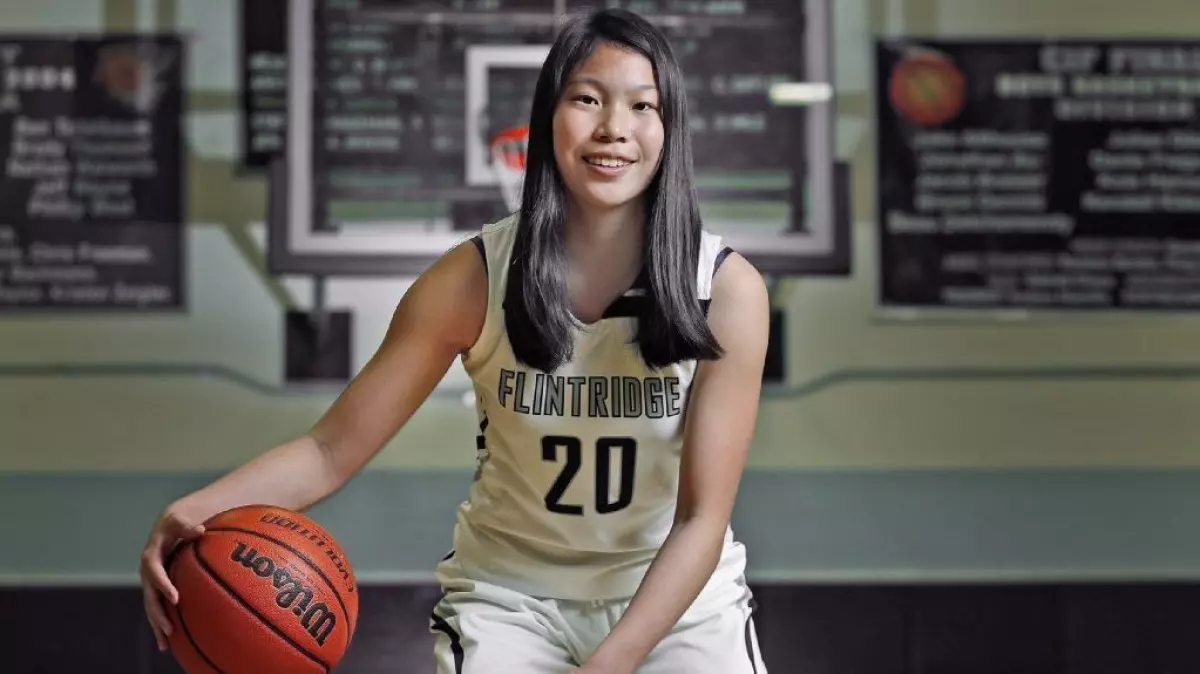
Before she became a professional, Kaitlyn Chen built her game in the gym and on the blacktops of SoCal. Raised in San Marino, California, and born to Taiwanese parents, her roots and her game are equally dynamic. She grew up idolizing Steve Nash’s playmaking and Jeremy Lin’s barrier-breaking NBA run. But it wasn’t until she found her own rhythm that her journey truly began.
Chen played her high school ball at Flintridge Preparatory School, where she quickly became a scoring machine and a leader on the court. Her ability to weave through defenders, push tempo, and hit tough shots caught the attention of college recruiters. But Kaitlyn didn’t choose the typical Power Five path—she chose the Ivy League.
At Princeton, she blossomed under head coach Carla Berube. Her sophomore season was a breakout: Ivy League Player of the Year, All-Ivy First Team, and the face of a Tigers squad that made national headlines in the NCAA tournament. She led Princeton to multiple Ivy League championships and Sweet 16 appearances, bringing brains and buckets to the forefront of college basketball.
After graduating from Princeton, Kaitlyn Chen took her talents to one of the most storied programs in women’s college basketball—UConn. Joining the Huskies as a graduate transfer, she stepped into a backcourt that needed her poise and leadership. Under head coach Geno Auriemma, Chen flourished in a system built on precision and pace. Her calm under pressure, elite court vision, and ability to control tempo made her a crucial piece of the Huskies’ 2024–25 title run. In the national championship game, Chen dished out key assists, hit clutch shots, and solidified her reputation as one of the most cerebral guards in the nation. For Kaitlyn, it wasn’t just about winning—it was about proving she belonged at the very top of the sport.
More than just stats, Chen became known for her control of the game—her ability to read defenses, stay poised, and lift her teammates in big moments. And as one of the few Asian American women playing at a high Division I level, she became an icon in her own right.
Enter: Coach Natalie Nakase, The Trailblazer on the Sidelines
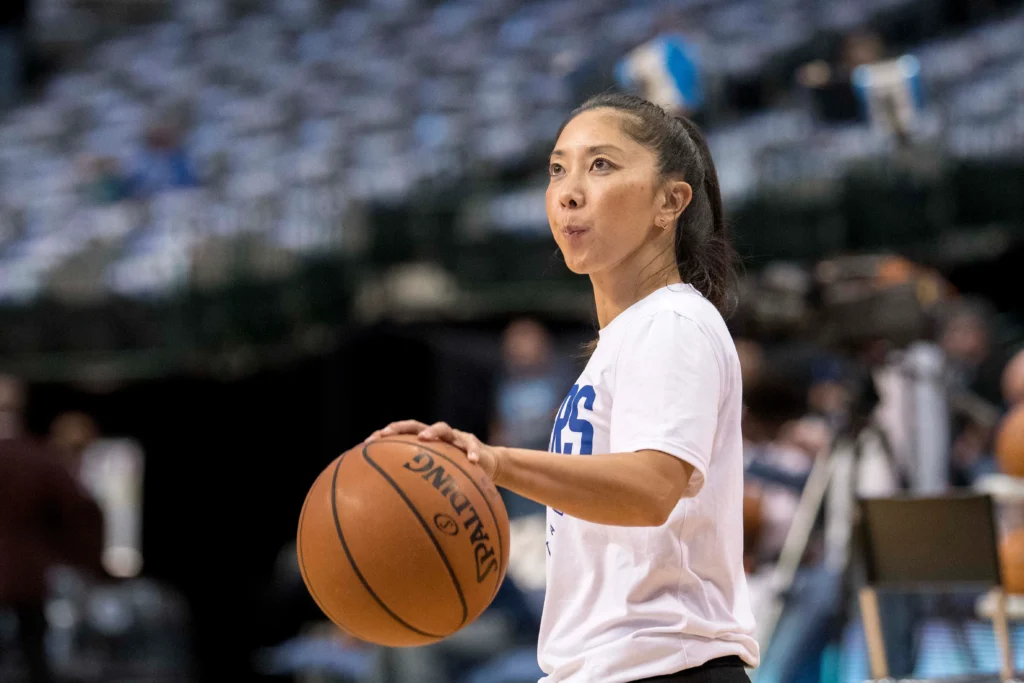
If Kaitlyn Chen is breaking ground as a player, Natalie Nakase already smashed glass ceilings as a coach.
Born in California to Japanese American parents, Nakase’s basketball career started in the gym halls of Marina High School in Huntington Beach. She went on to play at UCLA, where she was a scrappy, undersized point guard with a high IQ and unshakable confidence. After graduating, she played overseas in Germany and even suited up in Japan’s women’s pro league before suffering a career-ending ACL injury.
That injury would’ve sidelined most—but Nakase pivoted. She wasn’t done with the game. She wanted to coach.
Nakase made history as the first female head coach in the Japanese men’s pro league in 2011. Her work ethic, hunger to learn, and fearless attitude got her noticed back in the U.S. In 2012, she landed a spot with the Los Angeles Clippers’ video team. Over the next decade, she worked her way up the ranks—grinding as an assistant coach in the G-League, then joining the Clippers bench during a historic playoff run.
Before taking the reins in Golden State, Natalie Nakase made her mark as an assistant coach with the Las Vegas Aces—one of the WNBA’s premier franchises. Joining the Aces during their championship-contending seasons, Nakase worked under head coach Becky Hammon and helped develop one of the most dynamic offenses in the league. Her attention to detail, innovative player development drills, and deep understanding of guard play elevated the team’s backcourt depth and execution.
Whether it was in film sessions or on the court, Nakase’s presence was felt. She was more than just a voice on the bench—she was a trusted mind helping shape a championship culture. That experience, alongside stars like A’ja Wilson and Chelsea Gray, gave her the foundation to lead a franchise of her own.
Her arrival as the head coach of the Golden State Valkyries in 2025 isn’t just a personal milestone—it’s a cultural shift. In a league that has long championed diversity on the court, Nakase’s hire signals that leadership is evolving too. For the first time in WNBA history, an Asian American woman is leading a franchise from the sideline. It’s a breakthrough that expands the narrative of who gets to be in charge, who gets to make decisions, and who gets to shape the future of the game.
Nakase’s presence challenges the status quo and opens doors for future generations of Asian American coaches—both women and men—who have long been underrepresented at the highest levels of the sport. It’s not just about checking a box. It’s about changing the blueprint.
An Asian American Coach-Player Duo Making History
What makes Kaitlyn Chen’s arrival to the Valkyries so significant isn’t just her talent. It’s that she’s stepping into a system led by a coach who knows her journey.
Representation isn’t a buzzword—it’s real. And when a young Asian American girl sees Kaitlyn Chen dribbling down the court, or Coach Nakase calling the shots on the sideline, it sends a message: you belong here.
For years, Asian Americans have been underrepresented in basketball at the highest levels, especially in women’s sports. Jeremy Lin’s “Linsanity” era in 2012 gave the community a glimpse of what was possible on the men’s side, but the women’s game has long lacked similar visibility. Until now.
Kaitlyn and Natalie aren’t just athletes and coaches—they’re cultural catalysts. And together, on the same team, they’re building a new blueprint.
Impact on the Asian American Basketball Community
Ask any grassroots basketball organizer in cities like L.A., New York, or the Bay Area: the pipeline of young Asian American hoopers is growing. From AAU to high school tournaments, more and more kids are showing out. What’s been missing? Role models at the top.
With Kaitlyn Chen in the WNBA and Coach Nakase leading a franchise, that void is starting to fill.
Programs like the Asian American Sports Foundation and the Rise Above Basketball Academy have long worked to empower Asian youth in sports. Now, they have real-time proof that their dreams are valid. We’re talking about a generation of kids who can now say: “She looks like me. And she made it.”
Visibility matters. And while this moment is historic, it’s also just the beginning. More than just inspiration, Chen and Nakase are creating a pathway—a roadmap for young Asian American girls who want to hoop and lead.
Culture Meets Competition in the Bay
Let’s not forget the location. The Golden State Valkyries are based in San Francisco—a city that’s not just basketball-crazy, but deeply rooted in Asian American culture. From Chinatown to Daly City, this team’s arrival has cultural resonance.
The Bay Area is home to one of the largest Asian American populations in the country. Hosting the WNBA’s newest expansion team here is more than marketing—it’s meaningful. It’s home turf.
With Chen and Nakase front and center, the Valkyries become more than a basketball team. They become a symbol.
The Weight and Wonder of Representation
Chen enters the WNBA as a rookie, but her game is ready. Her transition to the pros will come with growing pains, sure—but she has the IQ, the poise, and the coach who gets it.
Natalie Nakase will have her own challenges as a first-year head coach in the WNBA. But if her journey has taught us anything, it’s that underestimating her would be a mistake.
Together, they aren’t just rewriting the story—they’re opening the book for new chapters to be written.
This isn’t just a feel-good story. It’s a real good story—one rooted in talent, resilience, and cultural pride. In Kaitlyn Chen, we see a player who broke through the Ivy League ceiling. In Natalie Nakase, we see a coach who built her way up from video rooms to head coaching.
And in both of them, we see the future of basketball—where diversity isn’t just present, but powerful.
So to every young Asian American girl dribbling on a driveway or watching the WNBA on a laptop screen: this moment is for you.


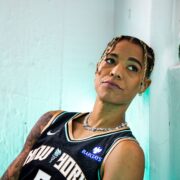
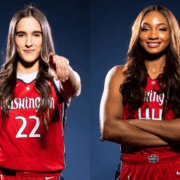


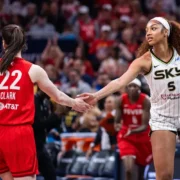
Thank you. Great perspective on amazing women.
Representation matters.
thank you for your article.
Excited for the team and the future.